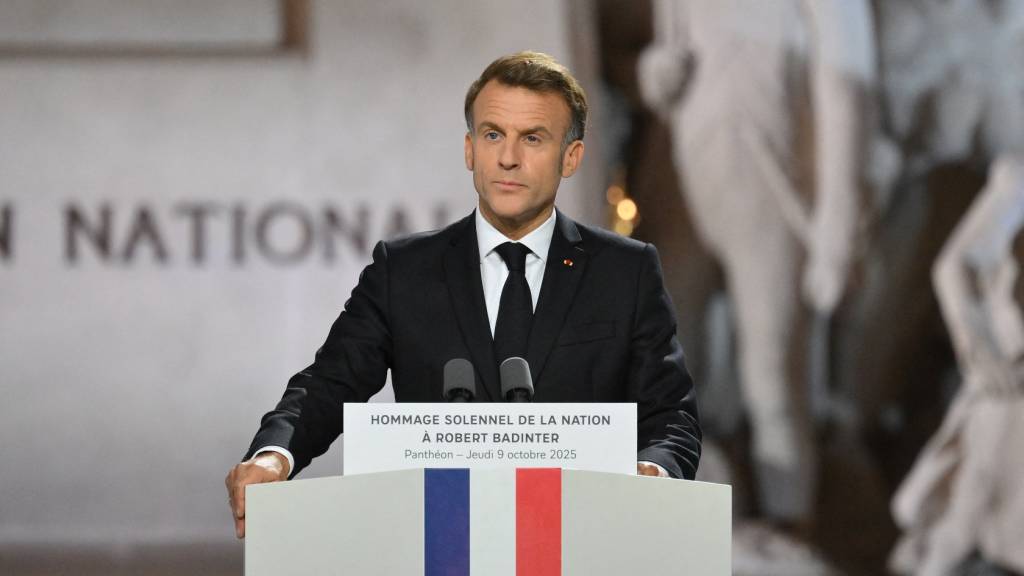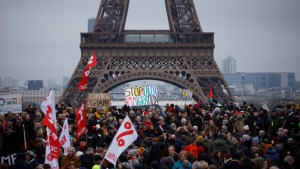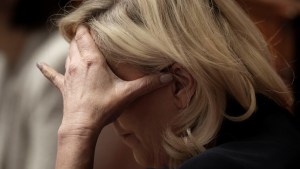On September 9, the prime minister of France was Sébastien Lecornu.
On October 6, after his proposed cabinet blew up over internal disagreements, Lecornu resigned.
Who would be the new prime minister? President Emmanuel Macron did not let the 39-year-old off the hook, giving Lecornu two days to find a solution that avoided snap parliamentary elections.
Forty-eight hours later, “outgoing prime minister” Lecornu announced that he had built a shaky majority around avoiding early elections, passing the buck back to his boss to announce a new PM.
Related Article Block Placeholder
Article ID: 1224044
On Friday, that PM was announced. It was… Sébastien Lecornu.
Independent. Irreverent. In your inbox
Get the headlines they don’t want you to read. Sign up to Crikey’s free newsletters for fearless reporting, sharp analysis, and a touch of chaos
By continuing, you agree to our Terms & Conditions and Privacy Policy.
Yes, it’s sad but true: France’s once-venerable, gilded institutions of government have been reduced to a Spiderman meme.
This funhouse mirror politics is just the latest in a crisis that has been lurching on since at least 2024, when Macron called snap parliamentary elections to break the country’s political deadlock, only for voters to return him a parliament without a majority that is split fairly evenly between three blocs that cannot — or will not — work together.
The country has burned through three PMs since then (four if you count Lecornu 1 as different from Lecornu 2… let’s not get too deep into the weeds here), with both Michel Barnier and François Bayrou falling on their swords after no confidence votes.
It seems we need a new law of 21st century politics. If you, like Macron and David Cameron before him, present yourself as the alternative to “chaos”, then chaos itself will come for you in due course.
Meanwhile, the national debt is spiralling, attracting the threat of EU sanctions and credit rating downgrades. The 2026 budget has not been passed, and getting it through will be Lecornu’s number one priority (that is, apart from preventing the government from imploding once more).
Macron, once seen by some as the shining hope for a third way in French politics, is reduced to a lame duck, unable to pursue much of his agenda despite the quasi-monarchical powers of the presidency. There is little incentive for any politician to work with him — the president has been abandoned by his former protégé and prime minister, Gabriel Attal; Marcon’s first and most stable PM, Edouard Philippe, has called for him to resign. A recent front page of the left-wing Liberation newspaper featured a picture of the president with the words “MACRON NAKED”, a mental image many French people didn’t need on top of the political pandemonium they have been enduring for more than a year now.
The left insisted that it was their turn to put up a prime minister, with the traditional left Socialist Party advocating a tax on the superwealthy and a repeal of pension reform as a condition for any deal. But Macron once again demurred and it is not in their interest to cosy up to a man many French people now see as the enemy — the president’s approval rating has plunged to just 14%. Meanwhile, far-right Marine Le Pen has promised to block everything the government proposes regardless of whether her party agrees with the policy.
Instead, left, centre, right and far right alike are all jockeying for place ahead of presidential elections in 2027. The French are no more impressed with them. In a recent poll, 90% said the political class were not up to the job.
Related Article Block Placeholder
Article ID: 1200618
Yet the hopelessly divided composition of the national assembly mimics the hopelessly divided composition of the country, and to reduce the explanation for this to the old cliché that “the French are ungovernable” would be too easy. France’s ailments are familiar to much of the industrialised world — the people with the least are doing it the hardest, the richest are getting richer, social security budgets are spiralling, climate action is lacking and many are blaming immigrants for their problems, stoked by the paranoid provocations of a media that has succumbed to far-right capture and a political class that is failing them.
Whether this government and its potential successors continue to crawl on for another 18 months or whether we will soon see new elections is anyone’s guess, as is the question of whether France’s anti-far-right republican front has any chance of holding off Le Pen’s advances when those elections do eventually come. (Whether she will be able to run in 2027 at all is dependent on her appealing her conviction for embezzling European funds).
Macron, meanwhile, will focus on the outward functions of his presidency to distract from the omnishambles at home. With Trump, Putin, Gaza and Ukraine on his docket, he’ll have more than enough to get on with.


